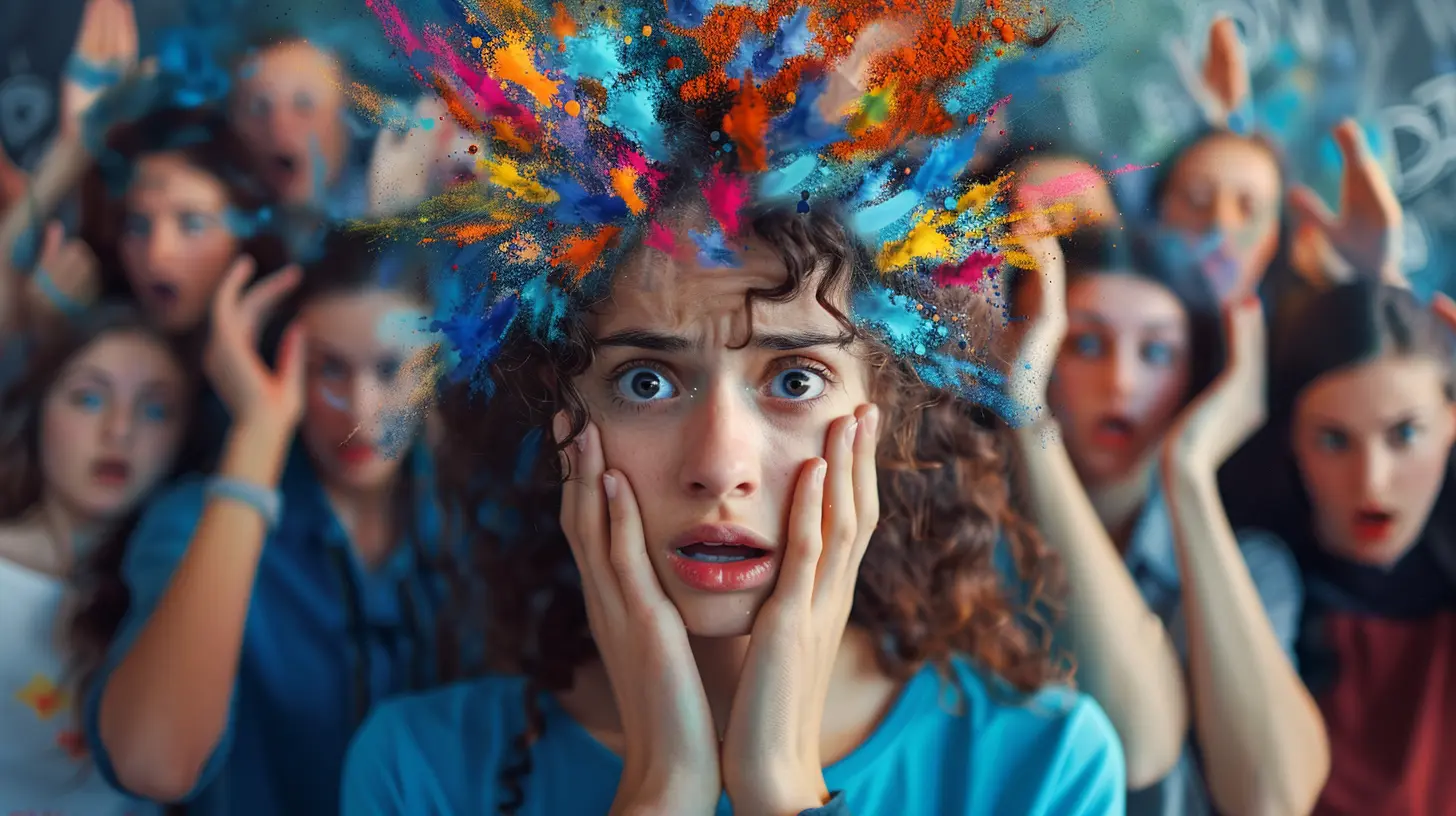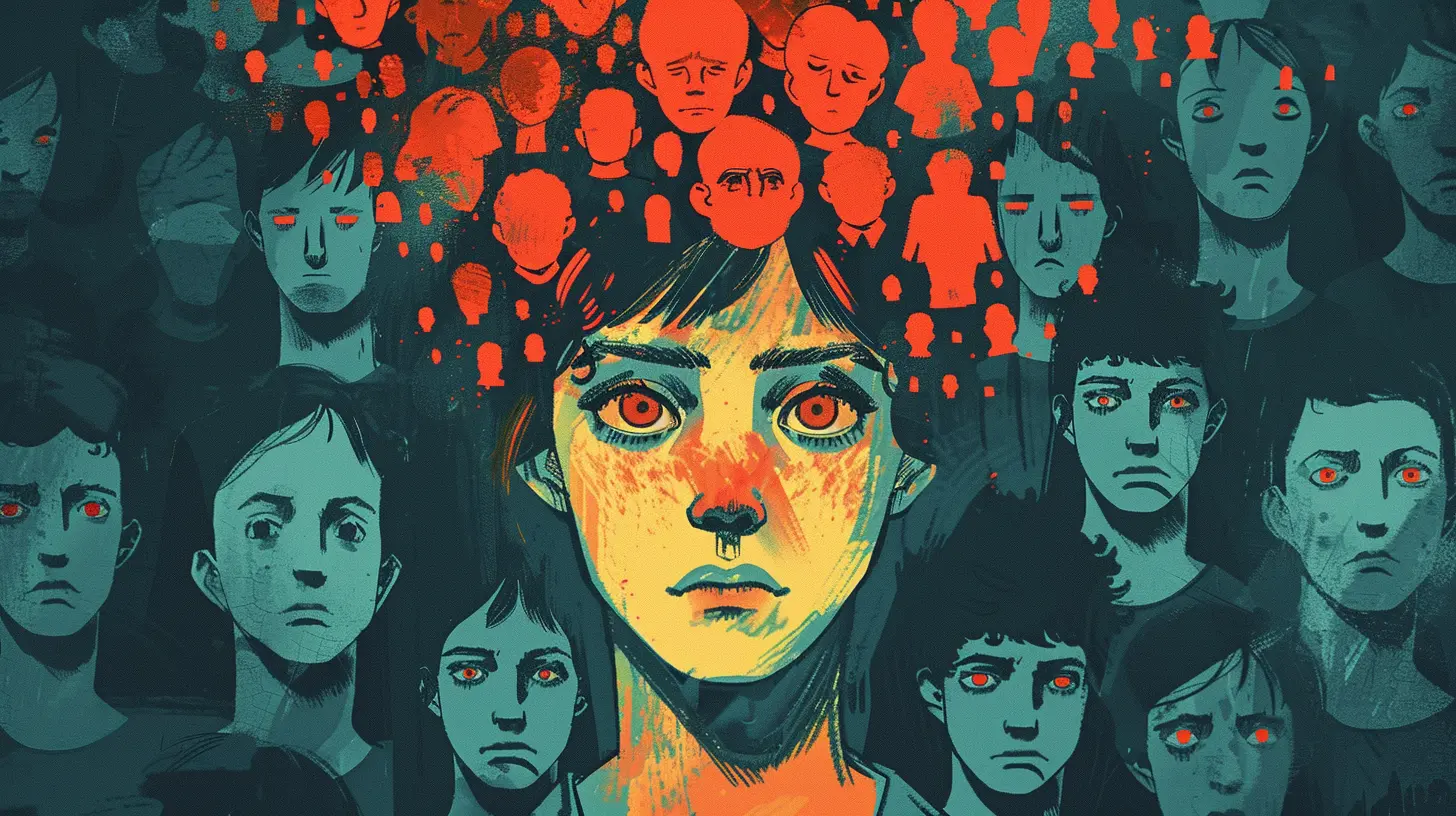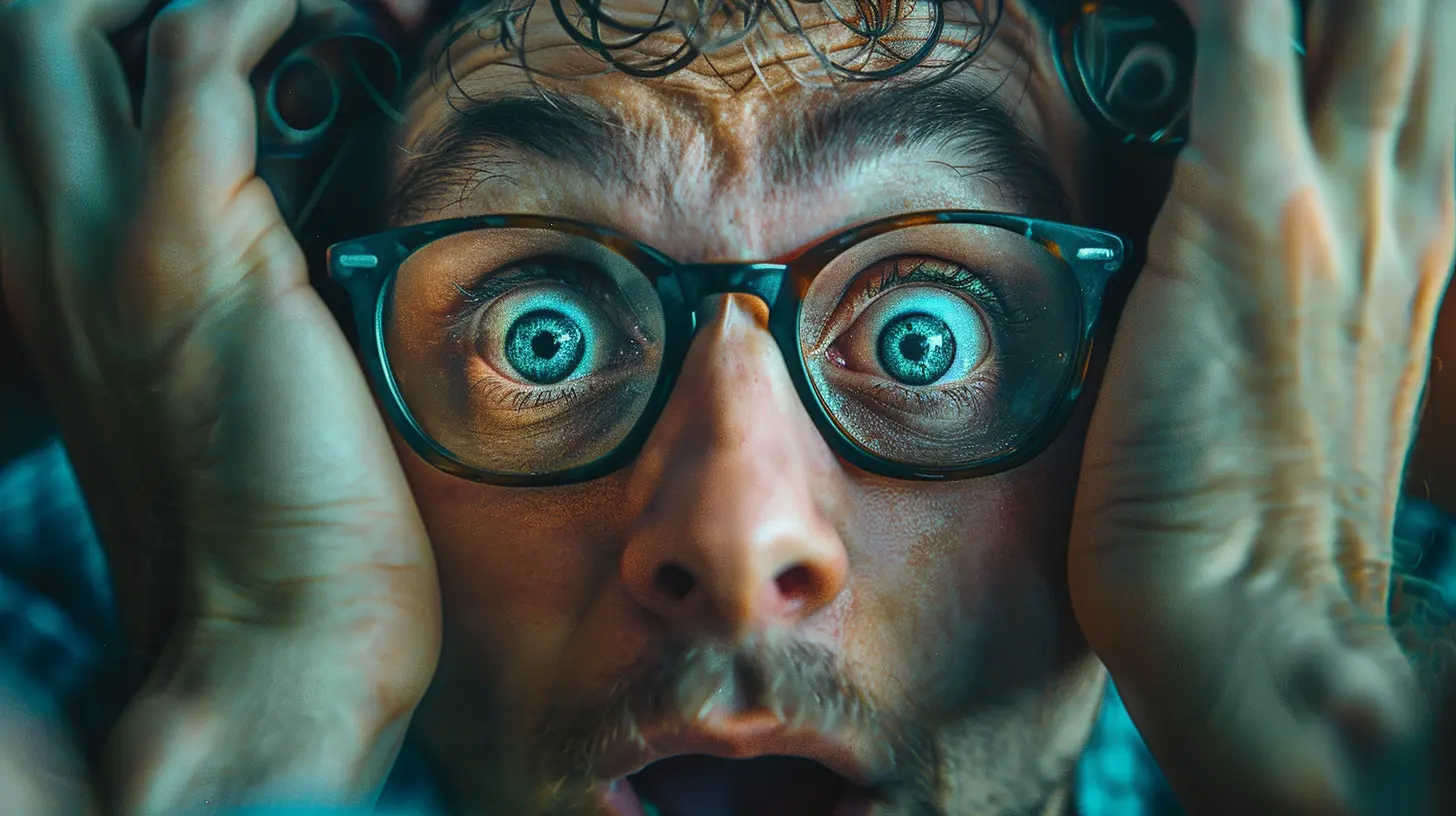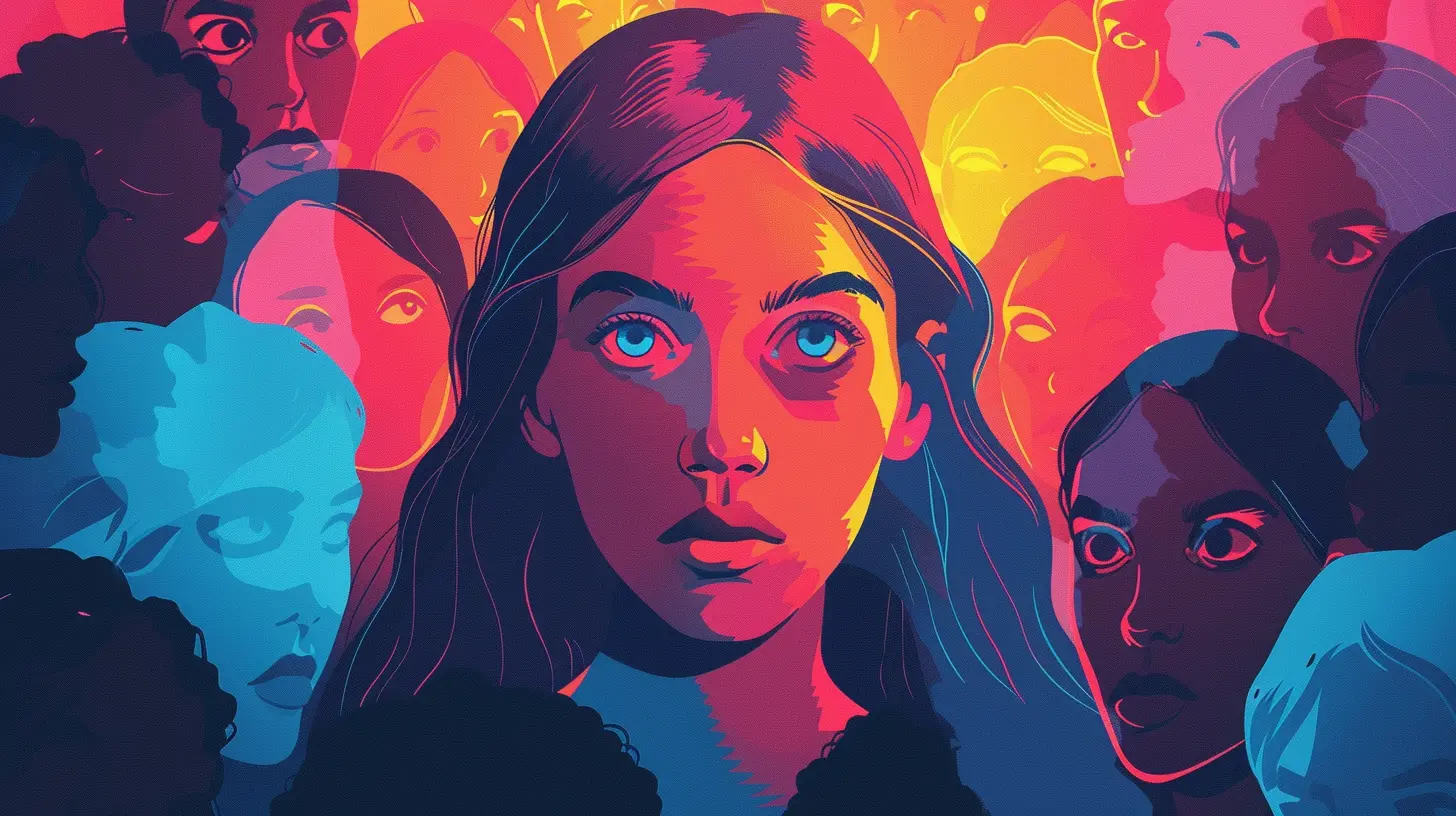Social Anxiety in Extroverts: A Hidden Struggle
24 August 2025
When you think of social anxiety, you probably picture someone who dreads social gatherings, avoids conversations, and prefers solitude over crowds. But what if I told you that extroverts—yes, the life of the party, the ones who thrive on human interaction—can also struggle with social anxiety?
It sounds contradictory, right? After all, extroverts are supposed to crave social interaction, not fear it. But social anxiety doesn’t discriminate, and even the most outgoing individuals can feel overwhelmed by the pressures of social situations.
In this article, we’re diving deep into the hidden struggle of social anxiety in extroverts. If you or someone you know is an extrovert who secretly battles social anxiety, you're not alone. Let’s unpack this paradox together. 
What Is Social Anxiety?
Before we dive into how it affects extroverts, let’s clarify what social anxiety actually is.Social anxiety disorder (SAD) is a mental health condition that causes intense fear, nervousness, or self-consciousness in social situations. People with social anxiety worry excessively about being judged, embarrassed, or humiliated. It goes beyond simple shyness—it's a persistent fear that can make even everyday interactions feel overwhelming.
Common symptoms of social anxiety include:
- Fear of being judged or criticized
- Overanalyzing social interactions
- Avoiding situations where attention is on them
- Physical symptoms like sweating, shaking, or an increased heart rate
- Difficulty speaking in front of groups
Now, let’s get to the confusing part—how does this affect extroverts? 
Can Extroverts Have Social Anxiety?
Absolutely. It’s a common misconception that only introverts struggle with social anxiety. But extroverts, despite loving social settings, can feel a deep sense of self-doubt and fear when interacting with others.Here's the thing: extroversion and social anxiety aren’t mutually exclusive. While extroverts enjoy socializing, that doesn’t mean they always feel confident doing it. In fact, many extroverts with social anxiety feel trapped between their need for connection and their fear of judgment.
Imagine wanting to attend every party but spending hours beforehand worrying about saying something awkward. Or being excited to meet new people but second-guessing every word that comes out of your mouth. That’s the reality for many extroverted individuals with social anxiety. 
Signs of Social Anxiety in Extroverts
So, how do you know if an extrovert is struggling with social anxiety? Here are some telltale signs:1. Overthinking Social Interactions
Extroverts with social anxiety often replay conversations in their heads, analyzing what they said, how others may have perceived it, and whether they embarrassed themselves.2. Social Burnout Despite Loving People
They crave social interaction but may feel mentally and emotionally drained after socializing. The constant fear of judgment takes a toll.3. Perfectionism in Conversations
Many extroverted individuals with social anxiety try to craft the "perfect" response in conversations, making interactions feel overly rehearsed and stressful.4. Avoiding Certain Social Situations
They might love parties and gatherings but avoid speaking in front of groups, initiating conversations with strangers, or attending events where they feel "on display."5. Using Humor as a Defense Mechanism
Humor becomes their shield. They might joke around excessively to hide their nerves or mask feelings of insecurity.
Why Social Anxiety in Extroverts is Overlooked
Since extroverts are naturally social, their struggles often go unnoticed. They might appear outgoing and confident on the surface, making it easy for others to assume they have no trouble in social settings.Many times, even they don’t recognize their anxiety as a problem. Instead of acknowledging their fears, they might attribute their nervousness to "just overthinking" or being "too sensitive."
The challenge here is that they feel torn—on one hand, they crave social interaction. On the other, their anxiety makes it incredibly exhausting. This internal conflict can lead to frustration, self-doubt, and even isolation.
The Emotional Toll of Social Anxiety on Extroverts
1. Feeling Like a Fraud
Extroverts often pride themselves on their social skills. So when anxiety kicks in, they might feel like they’re failing at something that’s supposed to come naturally to them.2. Struggling with Loneliness
Ironically, social anxiety can make extroverts isolate themselves. They want to be around people, but the fear of judgment sometimes pushes them to avoid social gatherings altogether.3. Exhaustion from Overcompensating
To hide their anxiety, they may try extra hard to appear energetic and confident. But this act is mentally draining, leaving them emotionally exhausted.4. Difficulty in Building Deep Connections
Worrying about saying the wrong thing can prevent them from forming genuine relationships. They may keep conversations light and surface-level to avoid potential embarrassment.How to Cope with Social Anxiety as an Extrovert
If you’re an extrovert struggling with social anxiety, know that you’re not alone. Here are some ways to manage it:1. Challenge Negative Thoughts
When anxious thoughts creep in, ask yourself: "Is this thought based on facts or just my fear talking?" Learning to challenge these thoughts can help break the cycle of overthinking.2. Practice Self-Compassion
You don’t have to be "perfect" in every conversation. Give yourself grace and remember that making mistakes is a normal part of human interaction.3. Gradual Exposure to Anxiety-Inducing Situations
Instead of avoiding social situations, ease into them. Start with smaller gatherings and work your way up to bigger events. The more you expose yourself to social scenarios, the more you’ll build confidence.4. Breathe and Stay Present
When anxiety starts to rise, take a deep breath and remind yourself to stay in the moment. Focusing on the present rather than worrying about what others think can ease nervousness.5. Seek Professional Help
If social anxiety is significantly impacting your life, therapy can be incredibly helpful. Cognitive Behavioral Therapy (CBT) is particularly effective in managing social anxiety.Final Thoughts
Social anxiety in extroverts is real, but it’s also manageable. Just because you love people doesn’t mean you’re immune to self-doubt or fear of judgment. The key is recognizing your struggles, being kind to yourself, and finding ways to navigate social situations without letting anxiety take over.You don’t have to choose between being social and feeling safe—you can have both. And remember, you’re not alone in this. Many extroverts are walking the same path, learning to find their balance.
So, next time you feel anxious before a social event, remind yourself that you belong. You are more than your anxiety. And you’ve got this!
all images in this post were generated using AI tools
Category:
Social AnxietyAuthor:

Jenna Richardson
Discussion
rate this article
1 comments
Zain McCabe
Thank you for this insightful article on social anxiety in extroverts. It's often overlooked, yet your exploration of this hidden struggle sheds light on the complexities of personality and mental health. I appreciate the emphasis on understanding diverse experiences with anxiety—it's crucial for fostering empathy and support.
September 15, 2025 at 4:42 PM

Jenna Richardson
Thank you for your thoughtful feedback! I'm glad you found the article insightful and appreciate your emphasis on understanding diverse experiences with anxiety.


